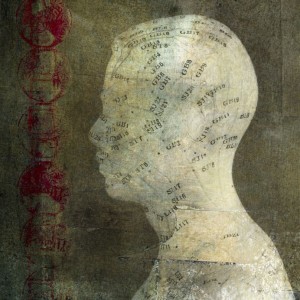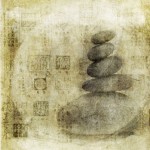LACs, MTCMs, DAOMs, OMDs, MDs, DTCM, oh my!
There is a lot of confusion out there about who can practice acupuncture and Oriental medicine.
There is a significant difference in terms of results with acupuncture treatments from different practitioners. If you want the most effective acupuncture therapy-you must go to someone who is highly trained in this field.
 Dr. Rozenn has advanced training in:
Dr. Rozenn has advanced training in:
Japanese Acupuncture Diagnosis and Technique
Classical Chinese Medicine Diagnosis and Therapies
Traditional Chinese Medicine Treatments
AND extensive Western Medicine training in both conventional and cutting-edge allopathic tests and treatments, enabling her to requisition the test that will help you with your specific condition.
There are so many different types of credentialed professionals who offer acupuncture in California. It is very difficult for the public to discern differences between these professionals who advertise the practice of Acupuncture. Every week a patient asks me some variation on this question:
What is the difference between them in terms of appropriate training and education?
- Licensed Acupuncturists (LAC) trained in California must either complete an intensive tutorial (a program in which Dr. Rozenn has trained students) or attend a 4 year full-time graduate program. A Masters of Science (MTCM) or a Professional level doctorate in Traditional Chinese Medicine (DTCM) are variations of this program. To be approved by the California state board, the curriculum must consist of at least 3,000 hours and include didactic classes in Chinese medical theory and diagnosis, acupuncture theory and technique, herbology, and Western medicine. Also required are 950 hours of clinical practice. The California state acupuncture licensing exam is infamous for its difficulty. With the passage of this exam, the title of Licensed Acupuncturist (LAC) is given. To keep the license current at least 50 hours of continuing education, including classes on drug-herb interactions and herb safety, has to be completed every two years.
- The abbreviation OMD stands for Oriental Medical Doctor. This degree was given for a short time in California several years ago and was
 unregulated. Some OMDs completed a two year doctoral program, some simply completed the required education program to sit for the state boards, while other licensed acupuncturists took a few weekend seminars to attain the title. It was revived in the early 2000’s for a short time as a legitimate degree, though very few people completed it before it was discontinued.
unregulated. Some OMDs completed a two year doctoral program, some simply completed the required education program to sit for the state boards, while other licensed acupuncturists took a few weekend seminars to attain the title. It was revived in the early 2000’s for a short time as a legitimate degree, though very few people completed it before it was discontinued. - The highest recognized degree in the field is the Doctor of Acupuncture and Oriental Medicine (DAOM). The DAOM is a clinical doctorate and consists of both clinical and didactic courses. Most DAOM programs last for two years and offer the only official specializations Gynecology, Pain Management, Cancer Treatment, Medical Qi Gong and Psychiatry.
- In sharp contrast, MDs can insert acupuncture needles with no specific Acupuncture or Oriental Medicine training. California law considers acupuncture to be within the scope of practice of medical doctors, even though they may not have one hour of training in acupuncture, Chinese medicine, herbal formulas, drug-herb interactions, etc., MDs are allowed to preform acupuncture under their license and advise patients about herbal medicinals. While not required by the state, some MDs have taken courses related to acupuncture such as classes at the Master’s level, continuing education classes for LACs and physician acupuncture programs. I am not aware of any specific acupuncture program for MDs that is longer than 500 hours, a popular course in California boasts 300 hours of training. Dentists and podiatrists may offer acupuncture treatment as long as they stay with in their scope of practice and complete an acupuncture course. While it is my experience that MDs on the whole are very free with their opinion of Chinese herbs and drug herb interactions, they often have absolutely no training in Western or Chinese herbal medicinals or herb-drug interactions.
…………………………………………………………………………………………………………………………….
Make an informed decision. Choose an acupuncture practitioner based on their education and experience in ACUPUNCTURE AND ORIENTAL MEDICINE and their specialties. If a practitioner claims to specialize in something, ask them how the obtained that specialty! Some practitioners claim an area of specialization with very little to no advanced education. Be your own best health advocate. Choose the right practitioner for you.
This Post Has One Comment
Leave a Reply
You must be logged in to post a comment.


Pingback: Santa Cruz Community Education, Understanding Licensing & Scope of Practice < Acupuncture Santa Cruz .net